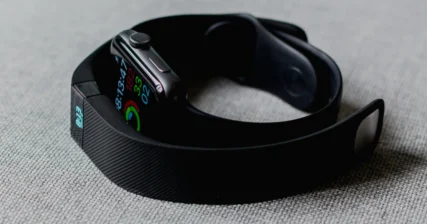Do you have a SMART goal for your teeth? You know…Specific, Measurable, Actionable / Attainable, Realistic, and Time-Based? That’s a ridiculous question, isn’t it? I’ll explain why SMART health and fitness goals are just as absurd.
For most people, setting SMART goals as motivation to follow a fitness program sets them up on a vicious cycle of success and self-sabotage.
By the way, when you’re ready for a fitness system that’s simple, effective, and will better your life instead of becoming your life, train with me. You won’t believe how easy it is to get and stay in shape.
SMART Goals For Your Teeth
Has anyone ever asked you to set a specific, time-based goal for your teeth? I doubt it.
If you’re like me, you don’t have a goal. Maybe if we were hard-pressed, we’d set a goal of not losing them, or keeping them looking more white than yellow.
Even without a goal, you probably brush your teeth each day. Most people brush twice per day.
And here’s the kicker…we take time and invest money in products to brush our teeth every day, and we do it without having a goal.
And, because we almost unconsciously brush, we live with good dental hygiene. Even more important, because we brush, we protect ourselves from certain pathogens making it into our digestive tracts.
Ok. Put that reality in the back of your mind, and let’s talk about Bill and Wendy, and their all-too-common situation.
Read also: Got Goals? Embrace the Challenge and Excitement of the Emotional Cycle of Change
Bill and Wendy’s First Anniversary
Bill and Wendy (names not real) look in awe at their wedding photos on their first anniversary. What an incredible day that was!
As they browse through memories of that special day, a recurring thought keeps popping into each of their heads: “Dang! I looked great! What happened to me in these past 12 months?”
A year after the wedding neither would fit in their tux or dress.
After getting over the frustration, and each admitting to one another that they’ve let themselves go, they decide they need to do something about it.
Like most people, they start talking about something they could sign up for that would motivate them to get in shape. A race? Physique competition? Beach vacation? High school reunion? Weight loss contest?
Whatever they choose, even if they get back to their wedding-day bodies, they’ll likely be back to their 1st-anniversary physiques a year later.
If you can relate to Bill and Wendy, you’re not alone.
How SMART Goals are Self-Sabotaging
I’ve read the Bible from front to back twice in my life. I wish that felt like an accomplishment, but it doesn’t.
I set my “SMART” goal to read the Bible in a year to develop a daily reading practice. Instead, as soon as I got to the end, I stopped reading it altogether.
This same problem occurs with people’s fitness programs.
No matter how much you want to keep your routine going after you reach your goal, there’s a part of you that wants to relax and take a break because you reached your goal.
When I trained clients, I always recommended that they commit to training with me for three to six months past the point of reading their goal, going on their trip, or participating in their event. I knew that if I didn’t get them back to their routine immediately afterward, it would be months, maybe years, before they got back to it.
By setting a SMART goal, you create an endpoint for your efforts, so you shouldn’t be surprised when your efforts stop, and your results disappear.
Read also: Suckituptitude: The antithesis of victimhood, anti-American culture.
A SMARTer Approach to Health and Fitness
The importance of good dental hygiene ends when your life does. In the back of your mind, you know that already, which is why you brush your teeth each day without a spouse needing to remind you or a friend needing to show up in your bathroom to kick you in the butt. You just do it.
Almost every week, I go to the gym on Monday, Tuesday, Thursday, and Friday. If it’s impossible to go one of those days, I move my workout day to the next day. I maintain this schedule no matter the weather or where we are in the world.
I go no matter how I feel. Not because I have an important goal in mind, but because I know it’s what I need to do if I’m going to stay fit and healthy.
After more than 20 years of experience, I’m more convinced than ever that consistently following a great strength and conditioning program, week after week, year after year, is the most important part of maintaining a lifetime of health and fitness.
If you repeatedly do the work, you won’t need to set a goal to get fit. You’ll just be fit.
But here’s the key to it all: You need to workout because it’s what you do, not because it’s the path to a short-term goal.
You have to workout no matter what: When you travel. When you’re tired. When you’re injured.
When working out becomes a nonnegotiable part of your lifestyle, you become a fit person, not a person hoping to get fit.
Of course, your workouts are just one of the four weekly disciplines that lead to a strong and healthy body. But, in my opinion, this is the most important.
Those who make their workouts nonnegotiable habits easily take on the other three habits that lead to lifelong health and fitness.
If you’ll show up at the gym, I’ll show you exactly what to do so you get the best results in the least amount of time. That’s why I developed VIGOR Training.
Photo by Markus Winkler on Unsplash



